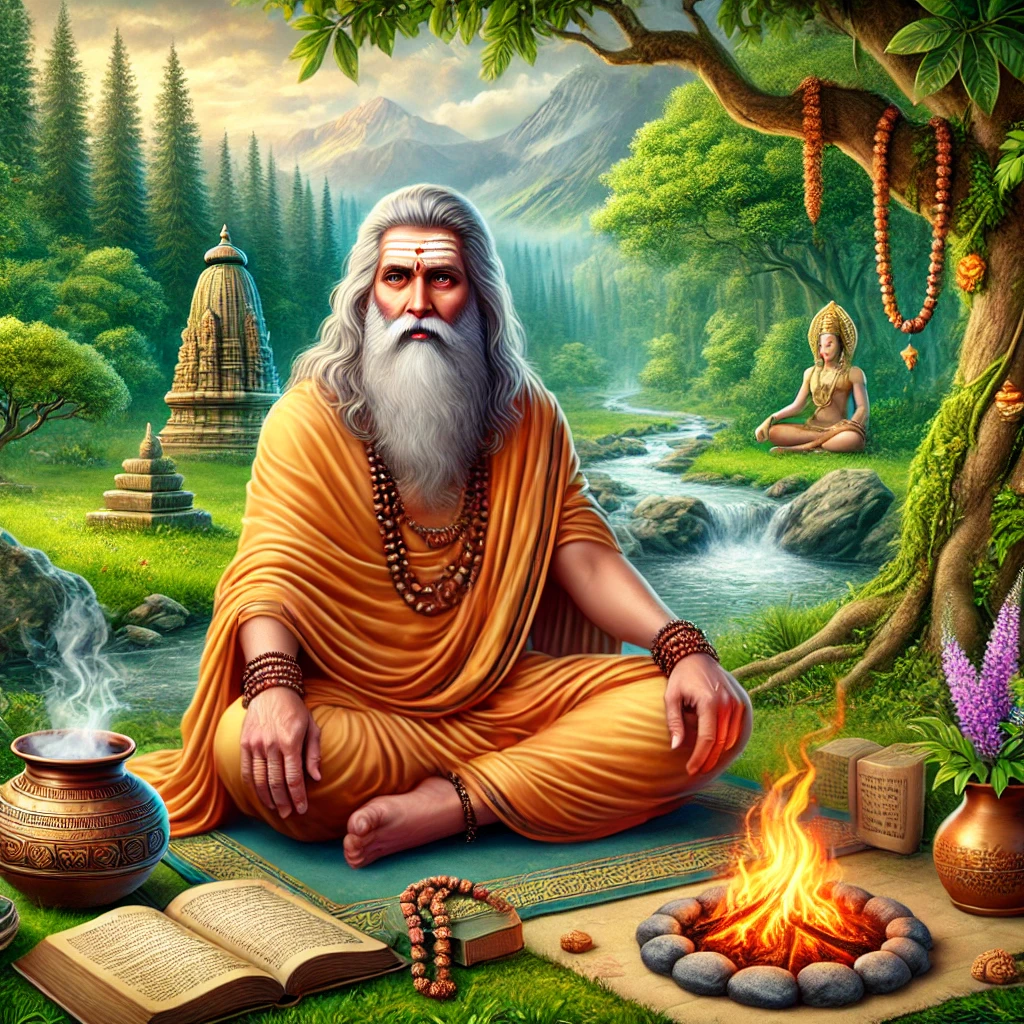Explore Gotras

Mathara: The Sage in Hindu Mythology
Mathara is a lesser-known but important figure in Hindu mythology. He is often associated with wisdom, spirituality, and his contributions to various texts and teachings. Though not as prominent as some of the more widely known sages, Mathara’s role in the broader landscape of Hindu tradition reflects the depth and variety of Vedic knowledge and philosophical teachings.
1. Origins and Lineage
- Mathara in the Vedic Tradition:
- Mathara’s origin and early life are shrouded in some ambiguity, and details about his ancestry are not as widely recorded in the mainstream texts. However, he is believed to have come from a highly revered family of sages, possibly with connections to significant Vedic sages.
- Mathara in the Vedic Tradition:
- Parents:
- Details about Mathara’s parents are largely obscure in the scriptures, though some texts suggest his association with the lineage of other great sages, who contributed greatly to Vedic thought. His teachings are often interwoven with the broader themes of Vedic spirituality, and his family line may have been highly regarded for its scholarly contributions.
- Parents:
2. Mathara’s Role in Hindu Mythology
- Contribution to the Vedas:
- Mathara is often mentioned in the Brahmanas and Upanishads, where he is sometimes noted for his deep philosophical insights. His contributions, however, are often referenced in a more cryptic manner, and much of his influence may lie in his teachings rather than specific mythological events.
- Contribution to the Vedas:
- Association with Vedic Sacrifices:
- Mathara is also linked to the understanding of Vedic rituals and sacrifices. He may have been one of the sages who elaborated on the significance of proper sacrificial rites in the context of cosmic order and spiritual purity. His approach to Vedic sacrifices likely emphasized a philosophical and meditative understanding of ritual actions.
- Association with Vedic Sacrifices:
3. Mathara’s Contribution to the Vedic Tradition
- Teachings on the Cosmic Order:
- Mathara, like many sages of his time, focused on the connection between the microcosm (the human soul) and the macrocosm (the universe). He may have taught about the interconnectedness of all things, stressing the importance of maintaining harmony with the divine forces that govern the universe.
- Teachings on the Cosmic Order:
- Philosophical Insights:
- Mathara’s teachings were likely centered around concepts such as dharma (righteousness), karma (action), and moksha (liberation). His insights into how these concepts interact within the framework of life and spirituality may have been key in shaping the philosophical debates of the time.
- Philosophical Insights:
4. Mathara’s Role in Hindu Tradition
- Guardian of Ancient Wisdom:
- While not a central character in many of the well-known Hindu epics, Mathara is regarded as a guardian of ancient wisdom. His role in preserving and transmitting Vedic knowledge likely had an important influence on the spiritual development of subsequent generations of seekers.
- Guardian of Ancient Wisdom:
- A Contributor to Upanishadic Thought:
- Like many sages of the Vedic era, Mathara may have played a role in the development of the Upanishadic tradition, which is deeply concerned with metaphysical questions about the self, the nature of the soul, and the ultimate reality, Brahman. His contributions would have aligned with these themes, offering practical wisdom for spiritual seekers.
- A Contributor to Upanishadic Thought:
5. Mathara’s Legacy in Hinduism
- Spiritual Influence:
- Mathara’s philosophical and spiritual legacy can be seen in the broader context of Hindu philosophy, especially in areas related to meditation, sacrifice, and self-realization. While his teachings may not have been as widely documented as those of more famous sages, his influence still played a role in shaping the discourse of the time.
- Spiritual Influence:
- Incorporation into Later Texts:
- Mathara’s name may appear in various texts related to Vedic traditions, including the Brahmanas, the Aranyakas, and the Upanishads. These texts, which focus on rituals, philosophy, and spirituality, reflect the kinds of ideas that Mathara might have contributed to during his lifetime.
- Incorporation into Later Texts:
6. Mathara’s Influence in Hinduism
- Philosophical Thought:
- Mathara’s contributions to Vedic philosophy would have emphasized an understanding of the eternal truths found within the Vedas. His focus on the cosmic order, righteousness, and the nature of the self were likely important in the development of spiritual practices during his time.
- Philosophical Thought:
- Legacy in Spiritual Practices:
- Though less well-known today, Mathara’s teachings likely contributed to the formation of spiritual disciplines within Hinduism. His legacy would be found in the deeper layers of meditation and spiritual thought, especially in the connection between action, meditation, and divine realization.
- Legacy in Spiritual Practices:
7. Conclusion
While Mathara may not be as widely recognized as other sages, his role in preserving and expanding Vedic teachings and his contributions to spiritual philosophy are significant. His philosophical insights on dharma, karma, and the cosmic order are part of the rich tapestry of Hindu thought, which continues to influence contemporary Hindu practices and ideas. As a sage, Mathara exemplified the deep connection between divine wisdom, meditation, and righteous living, making his contributions integral to the spiritual development of Hinduism.
